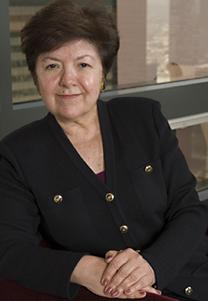English Plus is an American language plurality movement formed in reaction to the English-only movement. The intent was to promote greater acceptance of language diversity in the United States in order to encourage a broader American cultural development and more international perspectives. This would be achieved by encouraging education in English as well as secondary languages across the entire population, for immigrants and natives alike. This movement has been supported by language education professionals [1] and minority language advocacy groups. [2]
"English Plus" resolutions have been passed in the U.S. states of New Mexico, [3] Oregon, Rhode Island, and Washington. [4]
The term "English Plus" originated in a 1985 letter to then-Secretary of Education William Bennett from the Spanish American League Against Discrimination. [5]
We fear that Secretary Bennett has lost sight of the fact that English is a key to equal educational opportunity, necessary but not sufficient. English by itself is not enough. Not English Only, English Plus! ... Bennett is wrong. We won't accept English Only for our children. We want English plus. English plus math. Plus science. Plus social studies. Plus equal educational opportunities. English plus competence in the home language. Tell Bennett to enforce bilingual education and civil rights laws you enacted, or tell the President he cannot do his job. English Plus for everyone!
Education reform is the name given to the goal of changing public education. The meaning and education methods have changed through debates over what content or experiences result in an educated individual or an educated society. Historically, the motivations for reform have not reflected the current needs of society. A consistent theme of reform includes the idea that large systematic changes to educational standards will produce social returns in citizens' health, wealth, and well-being.

The United States Department of Education is a cabinet-level department of the United States government. It began operating on May 4, 1980, having been created after the Department of Health, Education, and Welfare was split into the Department of Education and the Department of Health and Human Services by the Department of Education Organization Act, which President Jimmy Carter signed into law on October 17, 1979.

The English-only movement, also known as the Official English movement, is a political movement that advocates for the exclusive use of the English language in official United States government communication through the establishment of English as the only official language in the United States. The United States has never had a legal policy proclaiming an official national language. However, at some times and places, there have been various moves to promote or require the use of English, such as in Native American boarding schools.

The Elementary and Secondary Education Act (ESEA) was passed by the 89th United States Congress and signed into law by President Lyndon B. Johnson on April 11, 1965. Part of Johnson's "War on Poverty", the act has been one of the most far-reaching pieces of federal legislation affecting education ever passed by the United States Congress, and was further emphasized and reinvented by its modern, revised No Child Left Behind Act.

The official languages of Canada are English and French, which "have equality of status and equal rights and privileges as to their use in all institutions of the Parliament and Government of Canada," according to Canada's constitution. "Official bilingualism" is the term used in Canada to collectively describe the policies, constitutional provisions, and laws that ensure legal equality of English and French in the Parliament and courts of Canada, protect the linguistic rights of English- and French-speaking minorities in different provinces, and ensure a level of government services in both languages across Canada.
Transitional bilingual education is an approach to bilingual education in which students first acquire fluency in their native language before acquiring fluency in the second language, where fluency is defined as linguistic fluency as well as literacy. This is in contrast to total immersion bilingual education in which students are directly immersed in the second language. Transitional bilingual education is among those most commonly implemented in public schools across the United States. The application of transitional bilingual education in the United States ultimately resulted from an effort to officially recognize Chicano and Latino identities with the passage of the Bilingual Education Act.
Lau v. Nichols, 414 U.S. 563 (1974), was a United States Supreme Court case in which the Court unanimously decided that the lack of supplemental language instruction in public school for students with limited English proficiency violated the Civil Rights Act of 1964. The court held that since non-English speakers were denied a meaningful education, the disparate impact caused by the school policy violated Title VI of the Civil Rights Act of 1964 and the school district was demanded to provide students with "appropriate relief".

Who Are We? The Challenges to America's National Identity (2004) is a treatise by political scientist and historian Samuel P. Huntington (1927–2008). The book attempts to understand the nature of American identity and the challenges it will face in the future.

The Bilingual Education Act (BEA), also known as the Title VII of the Elementary and Secondary Education Amendments of 1967, was the first United States federal legislation that recognized the needs of limited English speaking ability (LESA) students. The BEA was introduced in 1967 by Texas senator Ralph Yarborough and was both approved by the 90th United States Congress and signed by President Lyndon B. Johnson on January 2, 1968. While some states, such as California and Texas, and numerous local school districts around the country already had policies and programs designed to meet the special educational needs of elementary and secondary school students not fluent in the English language, this act signaled that the federal government now also recognized the need for and value of bilingual education programs in U.S. public education. In 1969 there was a 50% drop out rate among Mexican American students who struggled to keep up with their English-speaking peers in school; Representative Tony Abril argued that the Bilingual Education Act would reduce this number. Passed on the heels of the Civil Rights Movement, its purpose was to provide school districts with federal funds, in the form of competitive grants, to establish innovative educational programs for students with limited English speaking ability.
Bilingual–Bicultural or Bi-Bi deaf education programs use sign language as the native, or first, language of Deaf children. In the United States, for example, Bi-Bi proponents state that American Sign Language (ASL) should be the natural first language for deaf children in the United States, although the majority of deaf and hard of hearing being born to hearing parents. In this same vein, the spoken or written language used by the majority of the population is viewed as a secondary language to be acquired either after or at the same time as the native language.
English-language learner is a term used in some English-speaking countries such as the United States and Canada to describe a person who is learning the English language and has a native language that is not English. Some educational advocates, especially in the United States, classify these students as non-native English speakers or emergent bilinguals. Various other terms are also used to refer to students who are not proficient in English, such as English as a second language (ESL), English as an additional language (EAL), limited English proficient (LEP), culturally and linguistically diverse (CLD), non-native English speaker, bilingual students, heritage language, emergent bilingual, and language-minority students. The legal term that is used in federal legislation is 'limited English proficient'. The instruction and assessment of students, their cultural background, and the attitudes of classroom teachers towards ELLs have all been found to be factors in the achievement of these students. Several methods have been suggested to effectively teach ELLs, including integrating their home cultures into the classroom, involving them in language-appropriate content-area instruction early on, and integrating literature into their learning programs.
The English Language Acquisition, Language Enhancement, and Academic Achievement Act - formerly known as the Bilingual Education Act - is a federal grant program described in Title III Part A of the federal Elementary and Secondary Education Act (ESEA), which was reauthorized as the No Child Left Behind Act in 2002 and again as the Every Student Succeeds Act in 2015. This section is specifically targeted to benefit Limited English Proficient (LEP) children and immigrant youth. The statute states that LEP students must not only attain English proficiency but simultaneously meet the same academic standards as their English-speaking peers in all content areas. Federal funding is provided to assist State Education Agencies (SEAs) and Local Education Agencies (LEAs) in meeting these requirements. In 2011, ESEA Title III awards were granted to 56 SEAs and the average award given to an individual SEA was $12,158,046.

The Equal Educational Opportunities Act (EEOA) of 1974 is a federal law of the United States of America. It prohibits discrimination against faculty, staff, and students, including racial segregation of students, and requires school districts to take action to overcome barriers to students' equal participation. It is one of a number of laws affecting educational institutions including the Rehabilitation Act (1973), Individuals with Disabilities Education Act (IDEA) and the Americans with Disabilities Act (ADA).
Structured English Immersion (SEI) is a total immersion bilingual education technique for rapidly teaching English to English language learners. The term was coined by Keith Baker and Adriana de Kanter in a 1983 recommendation to schools to make use of Canada's successful French immersion programs. The Canadian model was developed to encourage bilingualism through immersing Anglophones in the minority language and replaced many English-only laws in various Canadian provinces before the 1960s, while in the United States the same approach was advocated to force minority speakers to adopt English.

Vilma Socorro Martínez is an American lawyer, civil rights activist and diplomat who formerly served as the U.S. Ambassador to Argentina from 2009 to 2013 under President Barack Obama.

The Native American Languages Act of 1990 (NALA) is a US statute that gives historical importance as repudiating past policies of eradicating indigenous languages of the Americas by declaring as policy that Native Americans were entitled to use their own languages. The fundamental basis of the policy's declaration was that the United States "declares to preserve, protect and promote the rights and freedom of Native Americans to use practice and develop Native American Languages".
English First is a lobbying organization for the English-only movement in the United States founded in Springfield, Virginia in 1986 by Larry Pratt.
Deculturalization is the process by which an ethnic group is forced to abandon its language, culture, and customs. It is the destruction of the culture of a dominated group and its replacement by the culture of the dominating group. Deculturalization is a slow process due to its extensive goal of fully replacing the subordinate ethnic group's culture, language, and customs. This term is often confused with assimilation and acculturation.
In bilingual education, students are taught content areas like math, science, and history in two languages. Numerous countries or regions have implemented different forms of bilingual education.